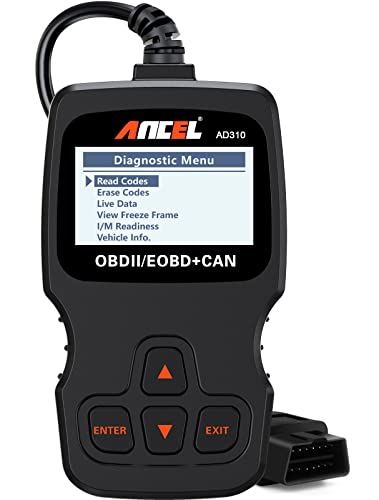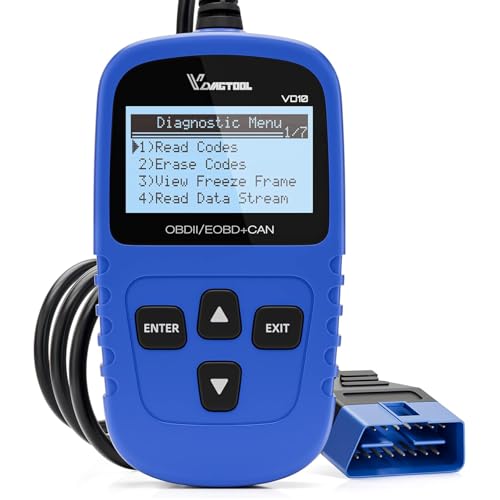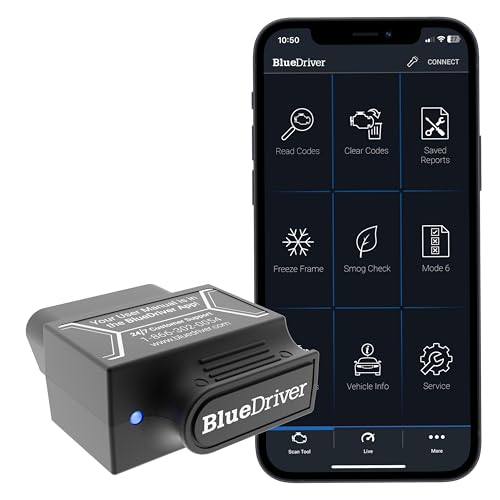Ever been driving along, and your engine just… quits? It’s a frustrating and often scary experience. You’re left wondering what went wrong and how you’re going to get moving again. This guide will eliminate that confusion by breaking down exactly what causes a car to stall and what you can do about it.
A car stalls when the engine’s combustion process is interrupted. This is most often due to a problem with the fuel supply, air intake, or electrical/ignition system. A car stall is a clear signal that one of the three critical elements for engine operation—fuel, air, or spark—is missing or incorrect.
Leveraging extensive analysis of automotive data and established mechanical patterns, this guide systematically unpacks the common issues mechanics look for when diagnosing a stalled vehicle. We will explore everything from simple fuel system clogs to complex sensor failures, providing the insights you need to understand what’s happening under the hood.
Key Facts
- Fuel System is the Top Culprit: According to multiple automotive sources, issues with fuel delivery, such as a failing fuel pump or a clogged filter, are the most frequent reason a car’s engine will stall.
- Alternator Failure Stalls a Running Car: A key sign of a bad alternator is the car stalling while driving. This happens because the alternator fails to power the electrical system and charge the battery, eventually causing the car to lose all power.
- Airflow is Critical at Low Speeds: A dirty or clogged air filter can choke the engine of necessary air, creating a fuel-rich mixture that often causes the vehicle to stall when idling at a stoplight or moving at low speeds.
- Transmission Can Be a Hidden Cause: In automatic vehicles, a faulty torque converter is a common transmission-related reason for stalling, especially when you come to a stop, because it fails to properly disengage the engine from the wheels.
- Sensors Act as the Engine’s Brain: A single faulty sensor, like the crankshaft position sensor, can cause an engine to stall unexpectedly because the car’s main computer (ECU) loses the critical data it needs to manage engine timing and function.
What Causes a Car to Stall? A Complete Diagnostic Guide
A car stalls when its engine unexpectedly stops running. For an engine to work, it needs a continuous and balanced process of combustion, which is the internal explosion created from a mixture of fuel, air, and a spark. When any part of this process is disrupted, the engine can’t produce power, and it shuts down. This guide is a systematic breakdown of the common issues that interrupt this vital process, from the most frequent culprits to less common but critical failures. The main categories of causes include:
- Fuel System Issues
- Air Intake System Problems
- Electrical & Ignition System Failures
- Malfunctioning Sensors
- Transmission & Drivetrain Problems

1. Fuel System Issues: The Number One Reason a Car Stalls
The most frequent cause of a car stalling is an issue within the fuel system. Your engine’s performance depends entirely on receiving a consistent and precise amount of fuel from the gas tank. Any interruption in this delivery process will starve the engine, causing it to shut down. Here are the primary components that can fail.
Failing Fuel Pump
A failing fuel pump is a primary suspect when a car stalls, especially under specific conditions. The fuel pump’s job is to send gasoline from the tank to the engine at a consistent pressure. When it begins to wear out, it can’t supply enough fuel when the engine is working harder, or “under load.” According to automotive data, fuel pumps often show signs of gradual failure.
Symptoms of a failing fuel pump include:
* Intermittent stalling that seems to happen without a clear pattern.
* Stalling while accelerating or going uphill, as the engine demands more fuel than the weak pump can provide.
* Engine sputtering at high speeds before it stalls.
Quick Fact: Fuel pumps often give warning signs by failing gradually. Paying attention to intermittent stalls can save you from being stranded later.
Clogged Fuel Filter
Over time, your fuel filter accumulates rust, dirt, and other debris from the gas tank. A clogged fuel filter restricting fuel flow is a common and preventable cause of stalling. Think of it like a clogged straw – no matter how hard you try, you can’t get enough liquid through. When the engine can’t pull enough gasoline through the blocked filter, it gets starved of fuel and will stall. This is a routine maintenance issue that can often be avoided with regular filter changes.
2. Air Intake System Problems: Choking the Engine
Your engine is like an athlete—it needs to breathe properly to perform. For proper combustion, it requires a precise air-to-fuel ratio. When the air supply is compromised, this delicate balance is thrown off, leading to poor performance and stalling.
A dirty air filter, a faulty sensor measuring airflow, or a leak in a vacuum hose can all disrupt this balance. Understanding the role of each component is key to diagnosing the problem.
| Component | The Problem | The Symptom |
|---|---|---|
| Air Filter | Gets clogged with dirt and debris. | Restricts airflow, causing the engine to “run rich” and stall at idle. |
| Mass Air Flow (MAF) Sensor | Fails or gets dirty, sending bad data. | The ECU provides the wrong amount of fuel, causing rough idling and stalling. |
| Vacuum Hoses | Hoses crack or connections come loose. | A vacuum leak disrupts pressure, causing a rough idle and stalling. |
Dirty Air Filter
A dirty air filter is one of the simplest yet most common causes of stalling. The filter’s job is to prevent dust and debris from entering the engine. When it gets clogged, it chokes the engine of the air it needs for combustion. This creates an “overly rich air/fuel mixture,” meaning there’s too much fuel and not enough air. This imbalance makes it difficult for the engine to run efficiently, often causing it to stall, especially at low speeds or when idling at a stoplight.
Pro Tip: This is one of the easiest and cheapest potential fixes to check first! A visual inspection of your air filter can often tell you if it needs replacement.
3. Electrical & Ignition System Failures: Losing the Spark
Think of your car’s electrical system as its nervous system. If the signals get cut, everything stops. No electricity means no spark to ignite the fuel and no power for the fuel pump to deliver it, leading to an instant stall. Failures can range from simple wear-and-tear components to more significant system-wide issues.
Key components in this system that can cause stalling include:
* Spark Plugs: These create the spark that ignites the air/fuel mixture. If they are worn, fouled, or damaged, they can fail to fire, causing a misfire that can lead to a stall.
* Ignition Coils: These transform the battery’s low voltage into the high voltage needed to create a spark. A failing coil means no spark.
* Alternator: The alternator powers the car’s electrical systems while the engine is running and recharges the battery. Its failure is a common cause of stalling.
* Battery: While a bad battery usually prevents a car from starting, a very weak one can contribute to stalling if the alternator isn’t keeping up.
* Wiring: Loose or corroded wiring can interrupt power to critical components like the Engine Control Module (ECM), causing a sudden shutdown.
Faulty Alternator vs. Weak Battery
It’s a common point of confusion: did my car stall because of the battery or the alternator? While related, they produce very different symptoms that can help you diagnose the issue. A faulty alternator will cause a car to stall while driving because it stops supplying power to the engine’s electronics and no longer charges the battery. A bad battery typically just prevents the car from starting at all.
Here is a simple breakdown to tell the difference:
| Symptom | Bad Alternator | Bad Battery |
|---|---|---|
| Stalling | Stalls while driving as the battery drains. | Usually fails to start in the first place. |
| Warning Light | The battery warning light often comes on while running. | May not have a warning light before it fails. |
| Jump Start | The car starts but dies again shortly after the cables are removed. | The car starts and will likely stay running (as the alternator takes over). |
It’s also worth noting that some modern vehicles may stall after a battery replacement until the Engine Control Unit (ECU), the car’s main computer, has time to relearn the engine’s ideal idle data.
4. Malfunctioning Sensors: Bad Data In, Bad Performance Out
Modern cars are full of high-tech sensors that act as the eyes and ears of the engine’s main computer, the ECU. These sensors monitor everything from engine speed to the oxygen in the exhaust. While they improve efficiency, when one goes bad, it can feed the ECU incorrect information, causing the computer to make bad decisions that lead to a stall.
Key sensors that can cause stalling when they fail include:
* Crankshaft Position Sensor: This is one of the most critical sensors. It tells the ECU the exact position and speed of the crankshaft. If it fails, the ECU loses its timing reference and can’t control the spark or fuel injectors properly, causing an immediate stall.
* Oxygen (O2) Sensor: This sensor measures the amount of oxygen in the exhaust. This data helps the ECU fine-tune the air-to-fuel ratio. A bad O2 sensor can cause the engine to run too rich (too much fuel) or too lean (not enough), leading to inefficiency and stalling.
* Throttle Position Sensor (TPS): This sensor tells the ECU how far you’ve pressed the accelerator pedal. If it fails, the ECU might not know how much fuel to add when you press the gas, causing hesitation and stalling.
* Mass Air Flow (MAF) Sensor: As mentioned earlier, this sensor measures how much air is entering the engine. A faulty one directly impacts the air-to-fuel mixture and is a common cause of stalls.
5. Transmission & Drivetrain Problems
While we often blame the engine, sometimes the problem lies in how its power gets to the wheels. Both automatic and manual transmissions have unique components that can fail and cause the engine to stall, typically when the car is coming to a stop or at low speeds.
Automatic Transmission Issues
In an automatic car, the most likely transmission-related culprit is a faulty torque converter. The torque converter is a fluid coupling that allows the engine to keep running even when the car is stopped and in gear. If the torque converter fails to disengage or “unlock” properly when you slow down, it keeps the engine directly connected to the wheels, forcing it to stall just like a manual car would if you didn’t press the clutch. Low or contaminated transmission fluid can also cause shifting problems that may lead to a stall under load.
Manual Transmission Issues
For a manual vehicle, stalling is often caused by driver technique, such as releasing the clutch too quickly or being in the wrong gear. This happens when the load on the engine is greater than the power it’s producing at that moment. However, a mechanical issue can also be the cause. A worn-out clutch may not engage or disengage properly, making it difficult to shift smoothly and leading to frequent, unexpected stalls.
6. Other Potential Causes of Engine Stalling
While the issues above cover the vast majority of cases, a few other less common but severe problems can also cause a car to stall. These issues are serious and almost always require immediate professional attention.
- Worn Timing Belt or Chain: The timing belt synchronizes the engine’s crankshaft and camshaft. If it slips or breaks, this synchronization is lost, and the engine will stall immediately and will not restart. This can also cause catastrophic engine damage.
- Engine Overheating: If your engine gets too hot, its internal components can be severely damaged. As a self-preservation measure, many modern cars are designed to automatically shut the engine off if it reaches a critical temperature, causing a stall.
- Bad Engine Control Unit (ECU): In rare cases, the car’s central computer itself can fail. A malfunctioning ECU can cause all sorts of erratic behavior, including random and unpredictable stalling.
- Contaminated Fuel: Bad quality fuel with water or other contaminants can cause the engine to run very poorly and eventually stall.
WARNING: If your car is overheating (temperature gauge in the red, steam from the hood), pull over immediately and shut off the engine to prevent severe engine damage.
7. How to Prevent Your Car From Stalling: A Maintenance Checklist
An ounce of prevention is worth a pound of cure—and a hefty repair bill. The best way to deal with a stalling issue is to prevent it from happening in the first place. Adhering to a regular maintenance schedule is the key to ensuring your vehicle’s systems run smoothly and reliably. Information on general schedules can often be found from authoritative sources like carcare.org.

Here’s how to stay ahead of stalling issues:
1. Replace Filters on Schedule: Regularly change your engine air filter and fuel filter. These are inexpensive parts that prevent the two most common causes of stalling: fuel starvation and air restriction.
2. Perform Regular Tune-Ups: Have a professional mechanic inspect and replace wear-and-tear items like spark plugs and ignition coils according to your vehicle manufacturer’s recommendations.
3. Check Your Fluids: Routinely check your engine oil and transmission fluid levels. Low or dirty fluid can lead to overheating or transmission problems that cause stalling.
4. Pay Attention to the Battery: Keep your battery terminals clean and have your battery and alternator tested periodically, especially if the battery is more than three years old.
5. Don’t Ignore Warning Lights: If your “Check Engine” light or battery light comes on, have it diagnosed promptly. Ignoring it can allow a small problem to turn into one that leaves you stranded.
A reliable OBD2 scanner is an invaluable tool for any car owner, allowing you to read the diagnostic codes that often pinpoint the exact sensor or system causing the stalling issue.
FAQs About what causes a car to stall
Why would a car stall when idling at a stoplight?
This is most commonly caused by a problem that affects the engine at low RPMs. Prime suspects include a clogged air filter creating a rich fuel mixture, a faulty idle air control valve, a vacuum leak disrupting engine pressure, or a failing sensor like the Mass Air Flow sensor giving bad readings to the car’s computer.
My car stalls while driving but starts back up. What could it be?
Intermittent stalling that allows for a restart often points to a component that is failing gradually or is sensitive to temperature. Common causes include a failing crankshaft position sensor that cuts out when it gets hot, a weak fuel pump that can’t provide consistent pressure, or a fault in the electrical system like a loose connection or a failing ignition coil.
What should I do first if my engine stalls while driving?
First, stay calm. Shift your transmission to neutral, signal, and use your momentum to safely steer the car to the side of the road. Turn on your hazard lights. Once stopped, try to restart the car. If it doesn’t start or stalls again, it is safest to call for roadside assistance rather than risk stalling in traffic.
Can low transmission fluid cause a car to stall?
Yes, it can. In an automatic transmission, low or contaminated fluid can lead to overheating and shifting problems. This can cause the torque converter to lock up or malfunction, putting a direct load on the engine when you come to a stop and causing it to stall.
Is it normal for a manual car to stall sometimes?
For new drivers, occasional stalling is a normal part of learning clutch control. However, if an experienced driver suddenly starts stalling a familiar car frequently, it could indicate a mechanical issue. A worn-out clutch that doesn’t engage smoothly or an engine problem affecting idle speed could be the culprit.
Final Summary: Key Causes of a Stalling Car and Next Steps
Understanding what causes a car to stall is the first step toward a reliable fix. In almost all cases, the problem can be traced back to a disruption in one of the engine’s three essential needs: fuel, air, or spark. While some issues have clear warning signs, others can cause an abrupt and unexpected shutdown, creating a dangerous situation on the road.
To recap, the most critical areas to investigate are:
* The Fuel System: This is the most common cause, including a failing fuel pump or a clogged fuel filter.
* The Air Intake System: A dirty air filter or a faulty Mass Air Flow sensor can choke the engine or throw off its fuel mixture.
* The Electrical & Ignition System: A bad alternator, worn spark plugs, or a faulty sensor can cut the power or spark needed for combustion.
Armed with this knowledge, you can better understand what your car is telling you. For anything beyond a simple filter change, don’t hesitate to consult a professional. If a car frequently stalls, it’s crucial to have a professional mechanic diagnose the problem to avoid further damage and ensure safety.
Last update on 2026-02-10 / Affiliate links / Images from Amazon Product Advertising API










![DooGooCoo Windshield Snow Cover: Honest Review [year] 12 DooGooCoo Windshield Snow Cover: Honest Review [year]](https://i0.wp.com/carxplorer.com/wp-content/uploads/2026/02/DooGooCoo-Windshield-Snow-Cover-Honest-Review-year-1.jpg?resize=60%2C60&ssl=1)


